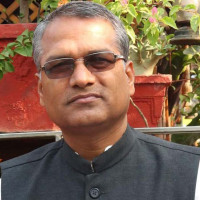- Saturday, 27 December 2025
Debate On Death Penalty
Zimbabwe, an African nation, has now abolished the provision of capital punishment. This move has been welcomed heartily by international organisations like the Amnesty International. While several countries have stopped giving death penalty, this sentence still remains a reality in many countries. Globally, there is an ongoing debate about whether the death penalty should be continued or not.
As per a statistics maintained by the Amnesty International, about three-quarters of countries in the world use capital punishment. Nations like Singapore take it as a legal punishment. And time and again, the South East Asian ministate has been criticised for stepping up executions and putting pressure on anti-death penalty groups. In 2024 itself, Singapore executed nine individuals and dozens were placed on death row for drug trafficking offenses. The country has so harsh law that anyone found with drugs is executed without mercy.
Unlike Singapore, Nepal stands firm against the idea to mete out death penalty. Nepal’s constitution provisions the fundamental right to live with dignity that states no laws can be formulated with the presence of the death penalty. This is Nepal’s firm commitment to safeguarding, protecting and promoting human rights. Amidst various practices, questions arise as to what exactly the pros and cons of the death penalty are. Those in support of capital penalty are of the belief that it is a way of providing closure as well as justice to victims and their families. Also, it is said to prevent additional crimes. And it is termed as the only way of punishing those who commit the worst atrocities. However, this is debatable as its role is called ‘ambiguous’ when it comes to deterring crimes.
Those against the practice of the death penalty consider it to be extremely inhumane and cruel. It is against the core principles of human rights and human dignity. It violates the rights against torture and punishment as well. Also, there have been instances, where death penalties have cost the lives of innocent people. However good a judicial system, a human error can make the death penalty a grave mistake. Once a life is taken, there is no way that a state will be able to reverse the action. This will further bring dissatisfaction and unhappiness and a feeling of unfairness.
It is necessary for those countries enforcing death penalty to be mindful about its adverse implications. Instead, they are required to focus on building a strong judiciary system, one that holds the capability to rightly and correctly mete out punishment to the perpetrators and ensure law and order. Human rights protection should always remain a top priority globally and governments should be attentive of this. Rather than focusing on the idea of ‘an eye for an eye’, we need to make our judiciary system independent, impartial and competent.
There should be fair trials and victims and their families should be able to feel that they have indeed received justice in true sense. Therefore, countries practising capital punishment should be encouraged to make necessary reforms in their laws for the sake of humanity. Only through effective and efficient law and order, can we be able to control the increasing number of crimes. Capital punishment can never be the way out if we want to make a crime-free society and world.

















